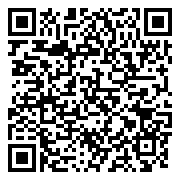Introduction
This comprehensive training course provides all the fundamentals necessary to drill a well, whether it is a shallow well or a complex, high-pressure well. Designed for engineers and field personnel involved in the planning and implementation of drilling programs, this course covers all aspects of drilling technology, with an emphasis on both theory and practical application. Participants will explore advanced drilling techniques and new drilling technologies that are revolutionizing the drilling industry today. Whether drilling onshore or offshore, participants will gain hands-on knowledge of advanced oil and gas drilling & completions technology to maximize efficiency and safety.
This course will build a solid foundation in drilling principles, drilling fluid management, drill string design, hydraulic optimization, and problem-solving techniques for common drilling challenges. Participants will also learn how to evaluate well-control driller's methods and apply them in real-world scenarios to enhance performance drilling technology.
Course Objectives
By the end of this training, participants will be able to:
- Drill a well cost-effectively while maximizing penetration rates and performance.
- Evaluate stuck pipe problems and avoid potential issues by optimizing hole cleaning and rate of penetration (ROP).
- Design drill string and BOP/wellhead systems, as well as implement bit and hydraulics programs effectively.
- Understand BHA design for proper deviation control, directional drilling, and horizontal drilling.
- Recognize and evaluate well control problems using Mud Logging principles and techniques.
- Apply practical solutions for analyzing and solving drilling problems encountered during operations.
Course Outlines
Day 1: Drilling Hole Problems and Practical Solutions
- Hole Problems: Understanding issues like stuck pipe and lost circulation.
- Impact of Hole Cleaning on hole problems and optimizing ROP.
- Types of Stuck Pipe and their solutions.
- Fishing Tools and techniques to address stuck pipe problems.
- Lost Circulation: Types and solutions for this common issue.
- New Plug Setting Technique for sealing lost circulation zones and managing wellbore integrity.
Day 2: Preventing Washouts and Twist-Off
- Prevention of Washouts: Techniques and analysis of true pressure loss in washouts.
- Bit Selection and hydraulic applications, including nozzle selection.
- Types of Bits: Rolling Cutter Bits, Polycrystalline Diamond Bits, and their optimal use.
- Drill String Design: Selection of casing seats, BOP equipment, drill pipes, collars, and BHA.
- Dynamic Drilling: Addressing issues like vibration and optimizing bit hydraulic efficiency.
Day 3: Drilling Fluids Planning and Control
- Lifting Capacity of Drilling Fluids and their impact on hole cleaning and optimization.
- Mud Properties and their role in drilling performance.
- Pressure Losses in the circulating system and how to manage ECD (Equivalent Circulating Density).
- Seepage Losses Control: Methods for managing loss of circulation and maintaining wellbore integrity.
Day 4: Well Control & Hydro-dynamic Pressure
- Well Control: Understanding the phases and importance of controlling well pressure.
- Induced Kicks: Causes, detection, and effective control methods using Mud Logging principles.
- Hydro-dynamic Pressure: Understanding how this impacts drilling and well control strategies.
- Kick Control Procedures: Methods like Well-Control Driller's Method and using the best kill procedures.
- Third Line of Defense: Underground blowout prevention and detection techniques.
Day 5: Planning Including Mud Logging Requirements
- Modern Mud Logging Units and their role in real-time monitoring and optimization.
- Gas Analysis and Shale Bulk Density in well planning and management.
- Drilling Models and Petro-Physical Measurements: How these tools improve oil well drilling technology.
- Mud Logging Services: Selection criteria and how to evaluate performance.
- Workshop: Practical application of drilling solutions and discussing real-world challenges in well drilling.
Why Attend This Course: Wins & Losses!
- Gain knowledge on advanced drilling technologies and practical techniques to enhance your drilling performance.
- Master the essential skills needed for managing complex drilling projects with precision and efficiency.
- Learn how to implement well-control driller's methods and offshore oil drilling technology to ensure safety and minimize risk.
- Acquire practical solutions for optimizing drilling operations, such as hole cleaning, rate of penetration (ROP), and stuck pipe problems.
- Understand the latest advancements in oil and gas drilling technology, including enhanced drill systems and advanced drilling techniques.
- Develop expertise in planning and managing drilling fluid and hydraulic systems, crucial for maintaining well control and drilling efficiency.
Conclusion
By attending this course, you will gain a comprehensive understanding of the latest advanced drilling technologies and techniques necessary for successful well planning and drilling operations. You will leave with practical tools and solutions to tackle the most common and complex drilling problems, from stuck pipes to well control. This training will equip you with the skills to optimize performance, reduce operational risks, and ensure safety throughout the drilling process. Whether you're working onshore or offshore, advanced drilling technology will provide you with the expertise needed to succeed in a competitive and fast-paced industry.
Don’t miss this opportunity to enhance your oil well drilling technology and improve your team’s performance.


